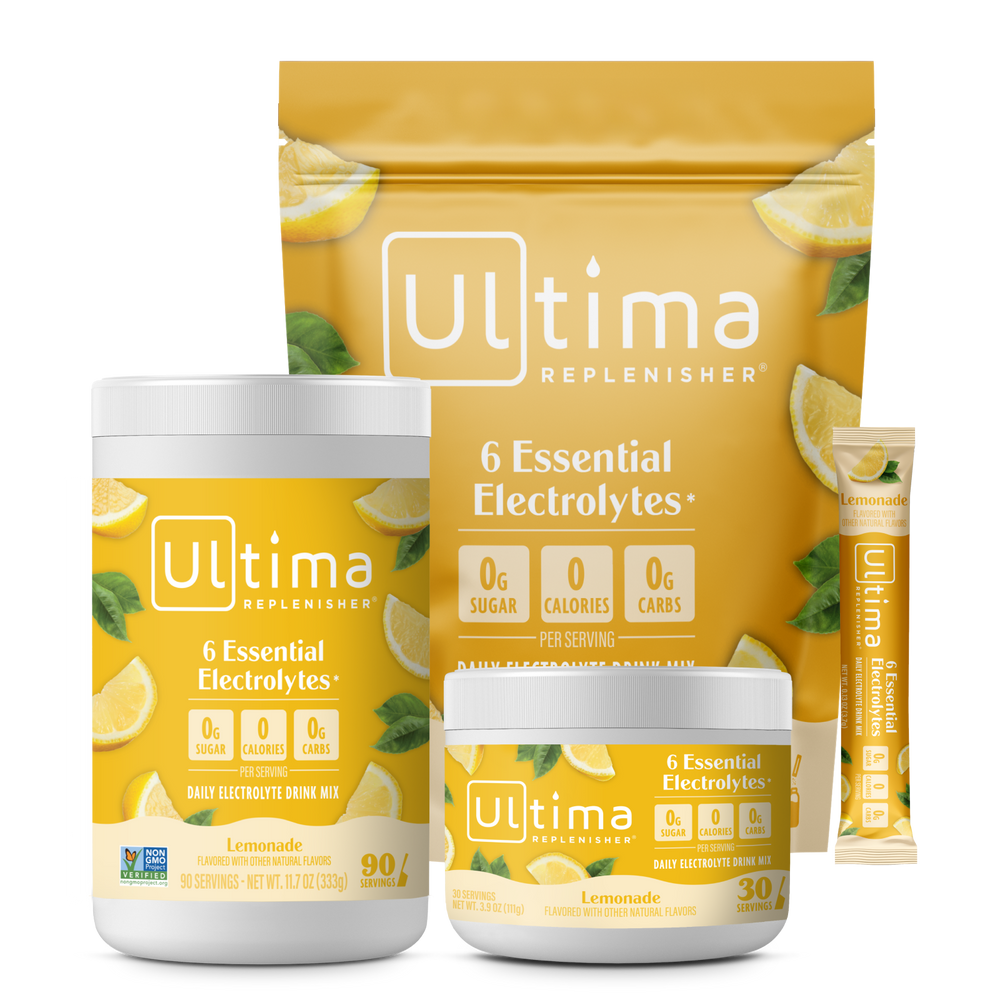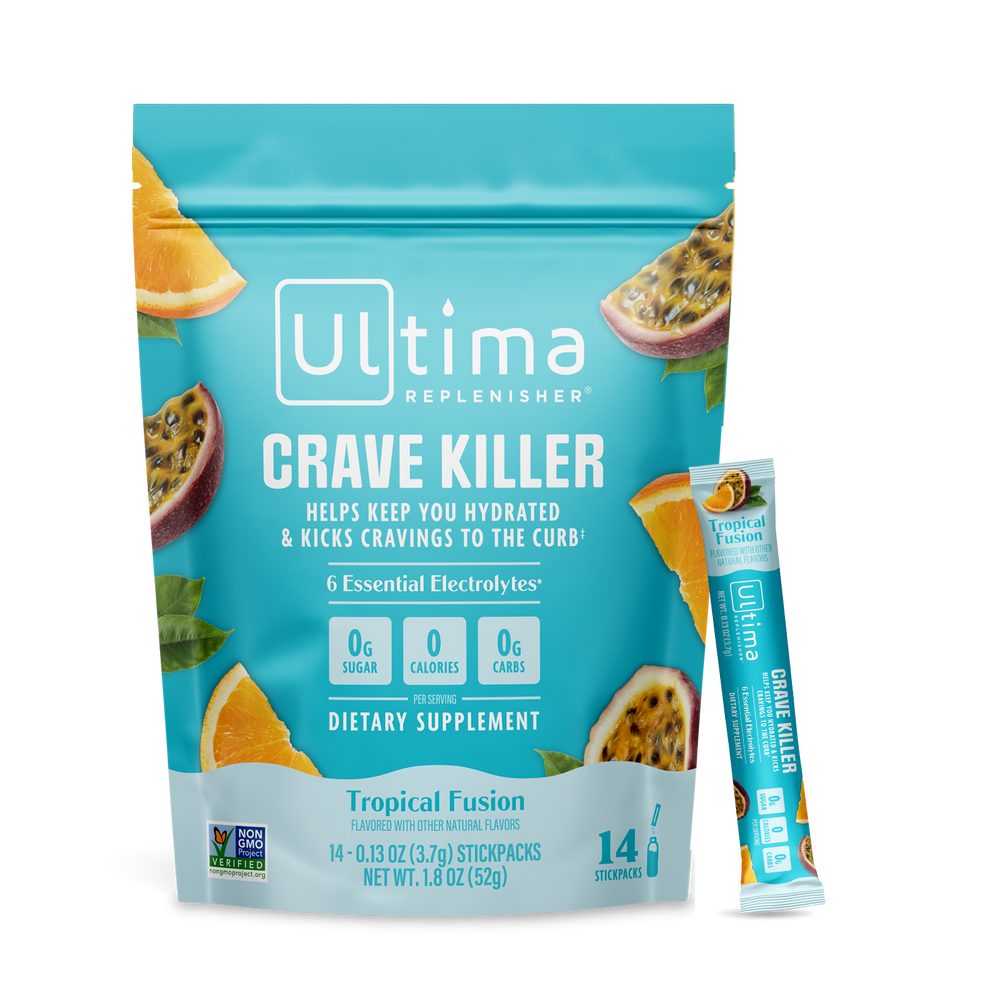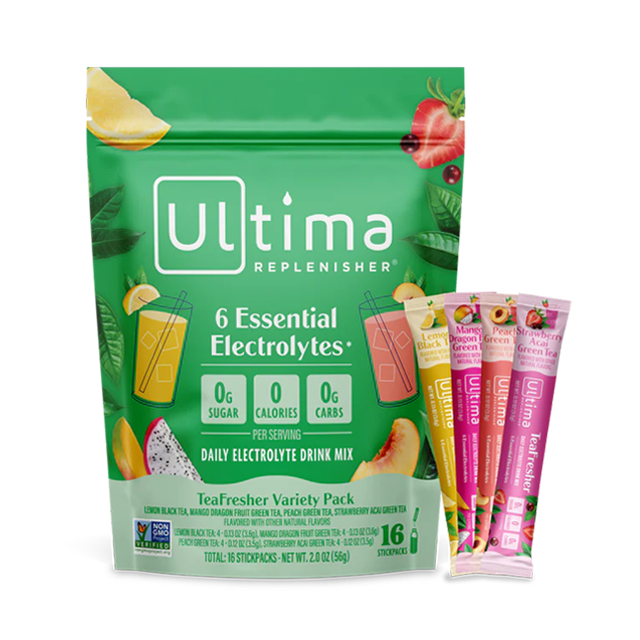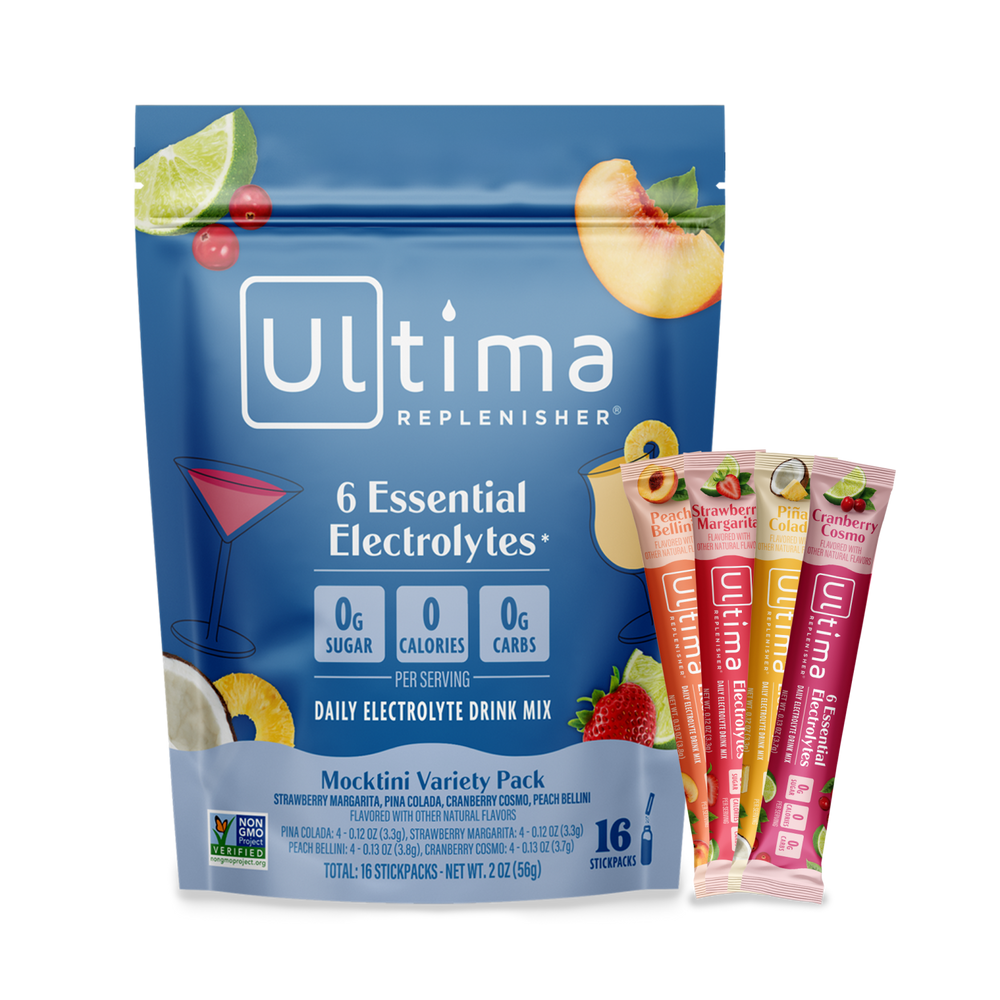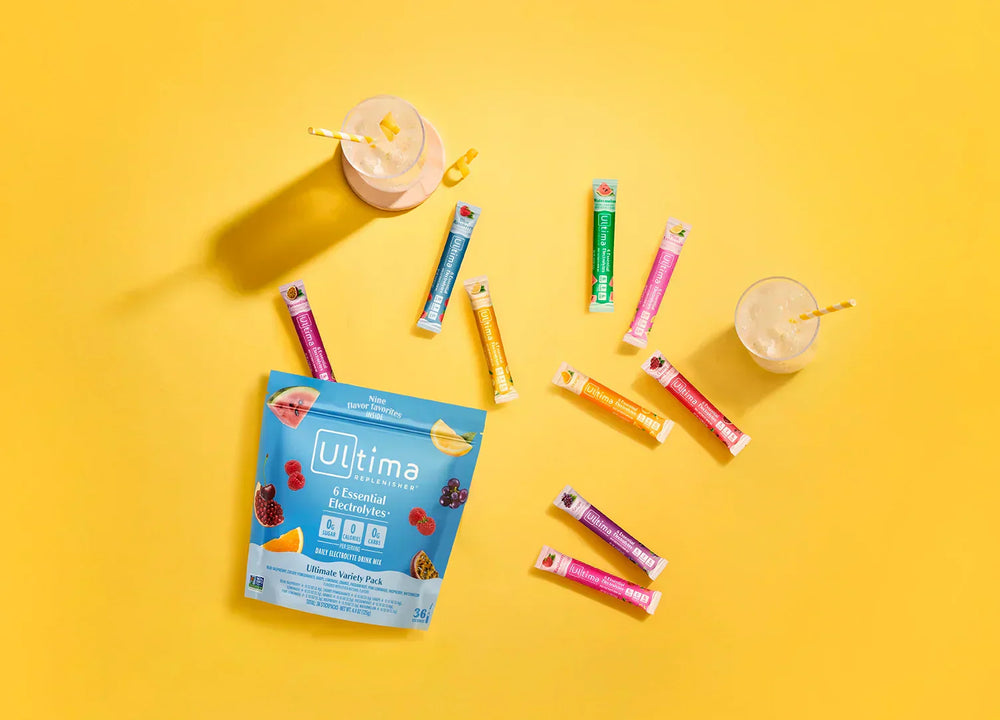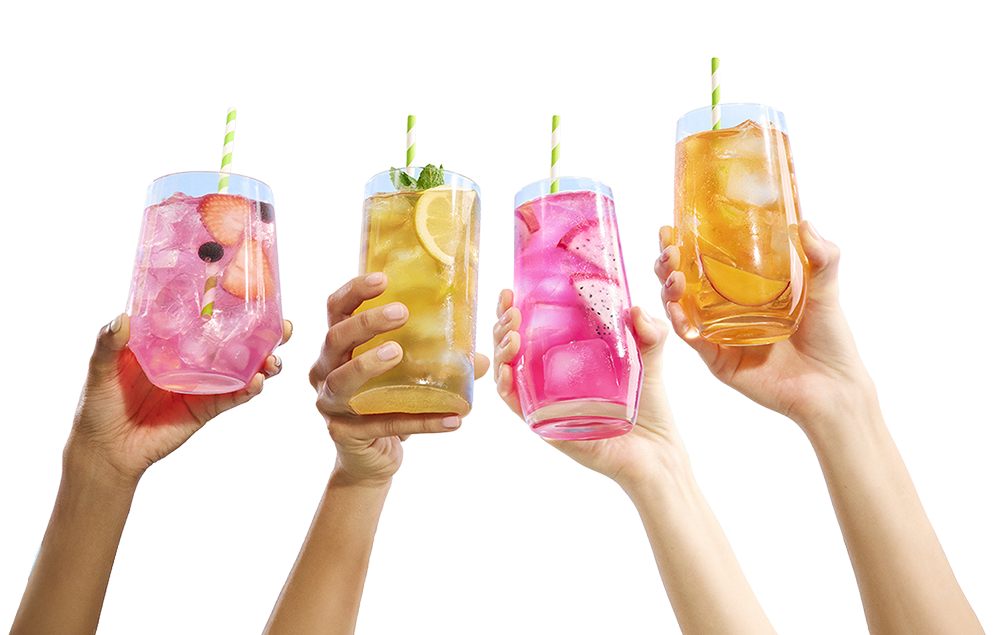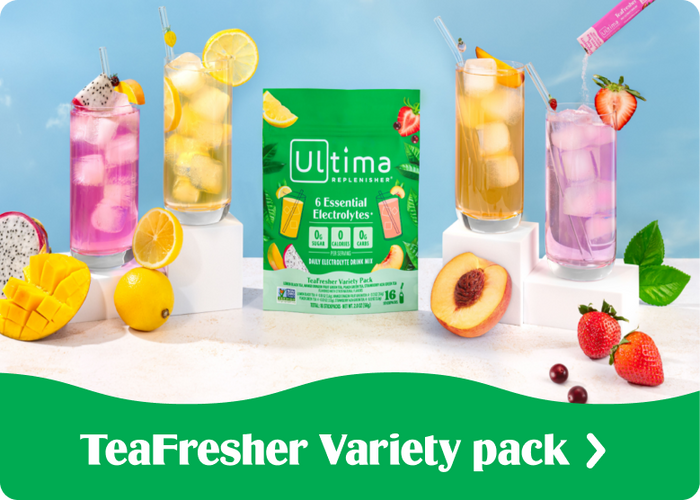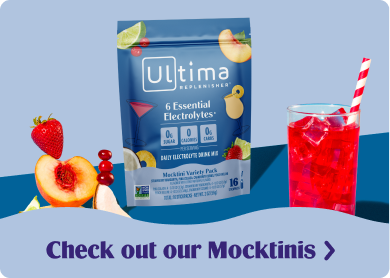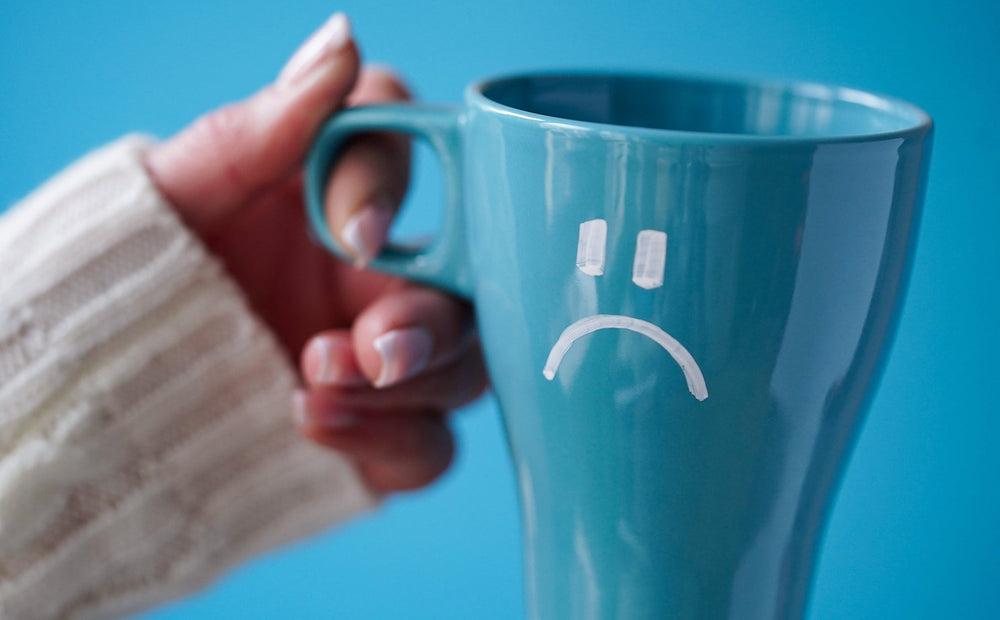
Is Dehydration Adding to Your Winter Blues?
Is Dehydration Adding to Your Winter Blues?
By Brierley Horton, MS, RD & Carolyn Williams, PhD, RD
We’re all pretty well-versed in the importance of staying hydrated in the warmer weather months—it's hot, you sweat more and realize how thirsty you are because you're so hot and sweaty. Plus, between May and September we hear a lot about staying hydrated, especially in the news.
The other half of the year, though? We seem to forget about the topic of hydration. Turns out, it's just as important to stay hydrated in the winter. In fact, for some people, it's easier to get dehydrated in the winter.
For one, your body's thirst response is diminished by up to 40 percent in cold weather. This is because your blood vessels constrict to prevent blood from flowing freely to the extremities so that your body can conserve heat in your body’s core. Maintaining your core temperature is a higher priority for the body than fluid balance. So in a way, your body is kind of fooled into thinking it's properly hydrated.
You also still sweat in the winter, but it’s not as noticeable because the air is drier and your sweat evaporates faster. There's also some data to suggest that we lose more fluids breathing and talking in the cold weather—and the colder the temperature, the more fluid you lose when you breathe and talk.
So, How Much Water Do You Need?
The only recommendation we have is from the National Academy of Medicine (formerly called the Institute of Medicine). It says about nine cups per day for women, and about 13 cups per day for men. But that's not just straight water that you're drinking. Those amounts are for all liquids—including what you get from food—and those recommendations are baseline. You need more than that if you are doing other things where you could lose water, or in an environment where your body loses more water.
7 Winter Dehydration Symptoms
Familiar symptoms of dehydration in the winter typically look like getting a bloody nose, going to the bathroom less, or when you do go, excreting darker urine. Or some of the lesser-known symptoms like fatigue and headaches. And then there are others that are surprising, such as chronically chapped lips or perpetually dry skin.
If your hydration status is something you tend to neglect in the winter, keep reading.
How Hydration Status Influences Your Mental Wellness
Water makes up about 70 to 75 percent of our brain mass. And being dehydrated by just 2 percent can impair your performance in any task that requires attention, psychomotor skill, and short-term memory. Some research suggests that even as little as 1 percent of dehydration—which is considered mild dehydration—could impact your concentration, attentiveness, and short-term memory.
Not getting enough water affects your mood, too, (hello, winter blues!) and can even put you at higher risk for anxiety and depression. More specifically, a 2018 study looked at over 3000 adults and found that those who drank more water had a lower risk of anxiety and depression than those who drank less water. In another study—this one was smaller—researchers looked at how increasing or decreasing water might change or influence mood. They took people who usually drink lots of water and they gave them less water. What they found is that when those people who usually drank a lot of water didn't drink quite as much, they felt less calm, less content, and more tense.
Why Water + Electrolytes = The Best Solution
You may have heard that unless you're doing extreme sports, sweating excessively, or you've had a GI bug where you’ve lost a lot of fluid, you don’t need extra electrolytes beyond what you get through food.
Many experts now say that’s potentially outdated advice. Doing more than just drinking water to stay hydrated is important—adding electrolytes to your water is key. The primary electrolytes are sodium, potassium, magnesium, chloride, calcium, and phosphate.
One reason we should be adding them to our water is that a lot of our food these days is lower in mineral content. We also don’t always eat a whole food heavy diet where you would naturally get a lot of those electrolytes. While Americans aren’t deficient per se in key electrolytes like potassium and magnesium, experts believe many of us get insufficient amounts for optimal physical and mental health. Potassium and magnesium specifically have been shown to influence mood, and play a role in depression and anxiety severity. Electrolytes also help with regulating blood pressure and muscle contraction.
For hydration, electrolytes are important because they help regulate and control the balance of fluids. They also play a role in getting water to the right parts of your body. In other words, you need electrolytes for hydration because they help disperse the water where the water needs to go. And similar to how you lose water, you also lose electrolytes in your sweat and urine.
But why should you add electrolytes to your water versus drinking plain water? Does water not naturally contain electrolytes? The short answer is no, not enough. Tap water has a very small amount of electrolytes, but not nearly enough to truly replenish what you have lost, or need. And bottled water has no electrolytes, as it’s been stripped of everything during the verification process. It's essentially dead water. (Unless, of course, they add electrolytes back in, which is typically on the label.)
What Makes Ultima Unique
Ultima has six electrolytes and trace minerals—sodium, chloride, potassium, magnesium, calcium, and phosphorus—blended together in just-right quantities based on years and years of research. The special formula is created to fill in the average person’s daily electrolyte gaps because even if you’re eating a pretty healthy diet, it can be hard to get all of those minerals every single day. Ultima bridges that gap for you.
Most importantly, Ultima Electrolytes tastes delicious, and that’s the leading reason why we’re fans!
About the Authors: Brierley Horton, MS, RD & Carolyn Williams, PhD, RD are both registered dietitians, mental health advocates and the hosts of the deeply informative and entertaining podcast: Happy Eating.
